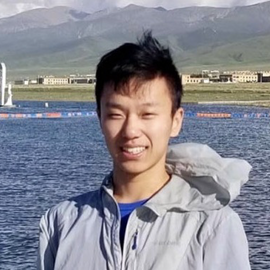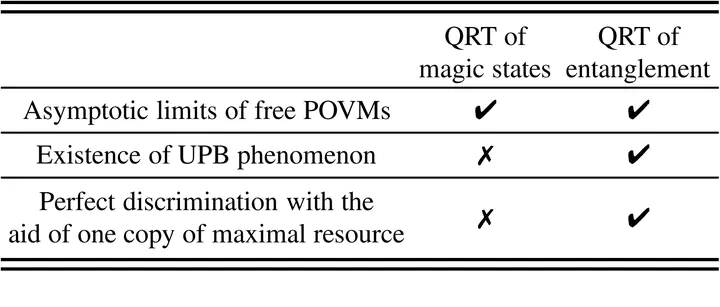Abstract
In the realm of fault-tolerant quantum computing, stabilizer operations play a pivotal role, characterized by their remarkable efficiency in classical simulation. This efficiency sets them apart from nonstabilizer operations within the quantum computational theory. In this Letter, we investigate the limitations of classically simulable measurements in distinguishing quantum states. We demonstrate that any pure magic state and its orthogonal complement of odd prime dimensions cannot be unambiguously distinguished by stabilizer operations, regardless of how many copies of the states are supplied. We also reveal intrinsic similarities and distinctions between the quantum resource theories of magic states and entanglement in quantum state discrimination. The results emphasize the inherent limitations of classically simulable measurements and contribute to a deeper understanding of the quantum-classical boundary.
Publication
Physical Review Letters

PhD Student (2023)
I obtained my BS in Applied Mathematics from China Agricultural University under the supervision of Prof. Zhencai Shen. I obtained my MS degree in Cyberspace Security from University of Chinese Academy of Sciences under the supervision of Prof. Zhenyu Huang. My research interests include quantum information theory and quantum computation.

PhD Student (2023)
I obtained my BS and MS degrees in computer science from the University of Melbourne. My research interests include distributed quantum computing, quantum entanglement and quantum machine learning.

Associate Professor
Prof. Xin Wang founded the QuAIR lab at HKUST(Guangzhou) in June 2023. His research primarily focuses on better understanding the limits of information processing with quantum systems and the power of quantum artificial intelligence. Prior to establishing the QuAIR lab, Prof. Wang was a Staff Researcher at the Institute for Quantum Computing at Baidu Research, where he concentrated on quantum computing research and the development of the Baidu Quantum Platform. Notably, he spearheaded the development of Paddle Quantum, a Python library designed for quantum machine learning. From 2018 to 2019, Prof. Wang held the position of Hartree Postdoctoral Fellow at the Joint Center for Quantum Information and Computer Science (QuICS) at the University of Maryland, College Park. He earned his doctorate in quantum information from the University of Technology Sydney in 2018, under the guidance of Prof. Runyao Duan and Prof. Andreas Winter. In 2014, Prof. Wang obtained his B.S. in mathematics (with Wu Yuzhang Honor) from Sichuan University.
 Comparison between the quantum resource theory of magic states and entanglement.
Comparison between the quantum resource theory of magic states and entanglement.